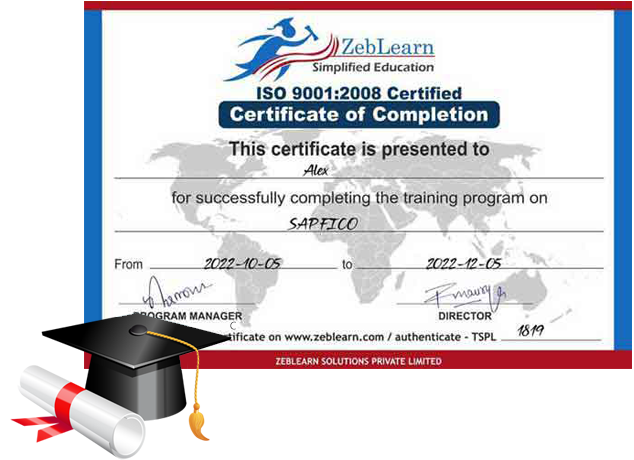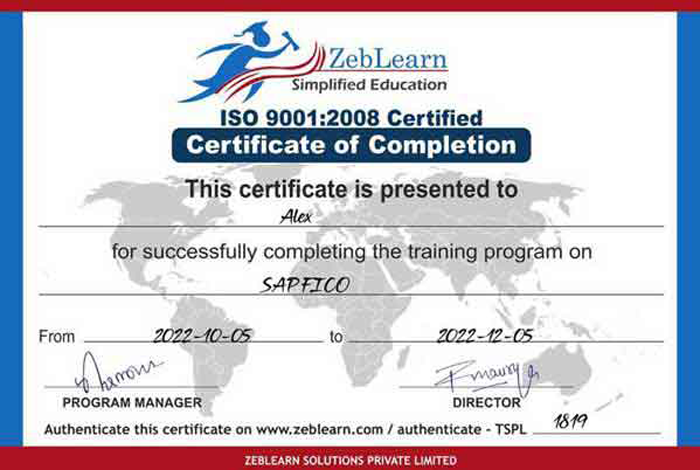- Large community support: Java has a large and active community of developers who contribute to open-source libraries and frameworks that can be used for automation testing. This community support makes it easier for testers to find solutions to problems and to stay up-to-date with the latest trends and technologies.
- Wide range of tools and frameworks: There are several tools and frameworks available for automation testing with Java, such as Selenium, TestNG, JUnit, and Cucumber. These tools and frameworks can be used to develop powerful and effective test automation frameworks.
- Cross-platform compatibility: Java is a platform-independent language, which means that automation tests written in Java can be executed on different platforms, such as Windows, Linux, and Mac OS.
- Object-oriented programming: Java is an object-oriented programming language, which allows testers to write modular and reusable code. This can help to improve code maintainability and reduce the effort required for test script development.
- Integration with other tools: Java can be easily integrated with other tools used in automation testing, such as Jenkins, Maven, and Gradle. This integration allows testers to create powerful and effective test automation frameworks.
In conclusion, automation testing with Java is a popular option due to its large community support, wide range of tools and frameworks, cross-platform compatibility, object-oriented programming, and integration with other tools.
- Understanding of automation testing: The course aims to provide learners with an understanding of automation testing and its benefits over manual testing. This includes the types of automation testing and the tools and frameworks used for automation testing.
- Java programming basics: The course aims to teach learners the basics of Java programming, such as variables, data types, control statements, and functions. This knowledge is essential for developing automation test scripts using Java.
- Object-oriented programming concepts: The course aims to teach learners about object-oriented programming concepts, such as classes, objects, inheritance, and polymorphism. These concepts are essential for developing reusable and maintainable test scripts.
- Automation testing frameworks: The course aims to teach learners about different automation testing frameworks, such as Selenium, TestNG, and JUnit. This includes how to use these frameworks to develop test automation scripts and how to integrate them with other tools.
- Developing test scripts: The course aims to teach learners how to develop automation test scripts using Java. This includes how to set up test environments, how to create test data, and how to execute tests using automation testing frameworks.
- Test reporting: The course aims to teach learners how to generate test reports and how to interpret them. This includes understanding different types of test reports and how to analyze them to identify issues.
Overall, the objective of an automation testing with Java course is to equip learners with the knowledge and skills required to develop and execute automation tests using Java. The course covers the basics of Java programming, object-oriented programming concepts, automation testing frameworks, test script development, and test reporting.
- More than 55% of IT industries have been shifted to the cloud space and the numbers are expected to increase by over 25% in the future. And it has been predicted by Forbes that more than 80% of Enterprise Workloads will efficiently be handled through cloud technologies.
- Automation Testing certified are high in demand and gaining significant traction in the US and Canada. People with years of experience can earn maximum of Rs. 1,800,000 per annum.
Unlike different disciplines, the salary of a Automation Testing professional is usually 30 percent higher.
At the beginner level, you can earn up to $113K per annum.
Even with less than one year of experience, you will make around Rs.4, 80,000 in a year.
- No matter whether you are a fresher or an experienced professional, our Automation Testing course will help you gain the relevant skills you required. If you are looking to start a career in the field of cloud, we will help you gain all essential skills and let you clear the global certification examination, too.
- On the course completion, attempt the Automation Testing exam and clear it in the first attempt as we assure 100% clearance rate for our students.
Establish yourself as a certified Automation Testing professional and get hired by leading IT industries.
Clear the interview and gain all essential technical and communication skills.
Get a more than 30 percent hike in salary as a certified professional.
- Wide range of tools and frameworks: Java offers a wide range of tools and frameworks that can be used for automation testing, such as Selenium, TestNG, JUnit, and Cucumber. These tools and frameworks are widely used in the industry, and they offer powerful and effective solutions for test automation.
- Object-oriented programming: Java is an object-oriented programming language, which allows testers to write modular and reusable code. This can help to improve code maintainability and reduce the effort required for test script development.
- Cross-platform compatibility: Java is a platform-independent language, which means that automation tests written in Java can be executed on different platforms, such as Windows, Linux, and Mac OS.
- Large community support: Java has a large and active community of developers who contribute to open-source libraries and frameworks that can be used for automation testing. This community support makes it easier for testers to find solutions to problems and to stay up-to-date with the latest trends and technologies.
- Integration with other tools: Java can be easily integrated with other tools used in automation testing, such as Jenkins, Maven, and Gradle. This integration allows testers to create powerful and effective test automation frameworks.
Overall, automation testing with Java is popular because it offers a wide range of tools and frameworks, object-oriented programming, cross-platform compatibility, large community support, and integration with other tools. These features make it well-suited for automation testing and help to enhance the efficiency and effectiveness of test automation.
- Developing and maintaining automated test scripts using programming languages such as Java, Java, or JavaScript.
- Collaborating with developers, product owners, and other stakeholders to identify and prioritize test cases for automation.
- Identifying, analyzing, and reporting defects and issues found during testing.
- Participating in the development and implementation of test automation frameworks and strategies.
- Performing manual testing when necessary to validate and verify test results.
- Conducting performance and load testing to ensure system scalability and reliability.
- Providing feedback on the usability and user experience of the software being tested.
- Ensuring that automated tests are well-organized, documented, and easy to maintain.
- Staying up to date with industry trends and best practices in automation testing.
- Communicating regularly with project stakeholders to provide updates on testing progress and results.
In addition to these technical responsibilities, an automation testing professional should also possess strong problem-solving and analytical skills, be detail-oriented, and have excellent communication and collaboration skills to work effectively with cross-functional teams.
- Top industry verticals:
- Top hiring companies:
- Benefits of getting trained with us:
Travel Industry, IT Sector, Healthcare and Medical Sector, Media & Entertainment, Banking & Finance, Transportation, Non-Profit Industries, eCommerce, Insurance Sector, etc.
IBM, NETFLIX, FEDEX, Infosys, American Express, etc.
Find yourself a more competent, confident, and knowledgeable resource.
Crack any interview with leading industries without any difficulty.
Start working in your dream company like a PRO.
See a drastic change in your communication skills.
- You will get a completion certification to validate your skills after the completion of Automation Testing training. Also, you are likely to get recognized among top corporate giants. When it comes to enhancing your overall career, we endeavor to give the maximum support.
Our training certificate is globally accepted
Helps the learner to climb the professional ladder
It showcases credibility
Increases your earning potential
Makes you stand tall above the rest
Why Should You Learn Automation Testing with Java Training?
By registering here, I agree to ZebLearn Terms & Conditions and Privacy Policy
Training Certification
Your certificate and skills are vital to the extent of jump-starting your career and giving you a chance to compete in a global space.
Talk about it on Linkedin, Twitter, Facebook, boost your resume or frame it- tell your friend and colleagues about it.
Plenary for Automation Testing Program
| Track | Week Days | Course Duration | Fast Track |
|---|---|---|---|
| Course Duration | 40-45 Days | 7 Weekends | 8 Days |
| Hours | 2 Hrs. Per Day | 3 Hrs. Per Day | 6+ Hrs. Per Day |
| Training Mode | Online | Online | Online |
Want To Know More About
This Course
Program fees are indicative only* Know more
Program Core Credentials

Trainer Profiles
Industry Experts

Trained Students
10000+

Success Ratio
100%

Corporate Training
For India & Abroad

Job Assistance
100%
FOR QUERIES, FEEDBACK OR ASSISTANCE
Contact ZebLearn Learner Support
Best of support with us
FAQ’s
There are no specific eligibility criteria to enroll in our Automation Testing course. Anyone interested in starting a career in Automation Testing can register for this Automation Testing training program and become job-ready.
Yes, our dedicated crew of professional regularly updated the content of our course; ensuring students must get the latest knowledge.
- The market trend for automation testing with Java has been consistently growing in recent years, and it is expected to continue to grow in the future. According to a report by MarketsandMarkets, the global test automation market size is expected to grow from $12.6 billion in 2020 to $28.8 billion by 2025, with a compound annual growth rate (CAGR) of 18.0% during the forecast period.
- Java is one of the most popular programming languages used for automation testing due to its simplicity, flexibility, and availability of a wide range of libraries and frameworks. Java can be used to automate various types of applications, including web, desktop, and mobile applications.
- The demand for automation testing with Java is driven by the need for organizations to reduce costs, improve testing efficiency, and accelerate the delivery of software products to market. Automation testing helps to eliminate manual errors and enables testers to focus on more critical aspects of testing, such as exploratory testing and test strategy development.
- Moreover, with the increasing adoption of Agile and DevOps methodologies, there is a growing need for continuous integration and delivery, which has further boosted the demand for automation testing with Java. The use of Java in automation testing is expected to increase as more organizations adopt these methodologies.
- In conclusion, the market trend for automation testing with Java is positive, and it is expected to continue to grow as more organizations seek to improve their testing processes and accelerate the delivery of software products to market.
- Learn a valuable skill: Automation testing with Java is a valuable skill in the software development industry. Taking a course can help you gain the knowledge and expertise required to develop automated test scripts using Java, which can enhance your career prospects.
- Improved efficiency: Automation testing can help to improve testing efficiency and reduce the time and effort required for manual testing. Learning how to automate tests with Java can help you develop more efficient and effective testing strategies.
- Cost-effective: Automated testing can help to reduce testing costs by eliminating the need for manual testing. By taking a course in automation testing with Java, you can learn how to develop and implement automated tests, which can save your organization time and money.
- Flexibility: Java is a flexible programming language that can be used to automate various types of applications, including web, desktop, and mobile applications. Taking a course in automation testing with Java can help you develop the skills to automate tests for different types of applications, which can enhance your versatility as a tester.
- Stay up-to-date: The software development industry is constantly evolving, and new technologies and tools are being introduced all the time. Taking a course in automation testing with Java can help you stay up-to-date with the latest trends and technologies in the industry, which can enhance your career prospects.
- Overall, taking a course in automation testing with Java can help you develop valuable skills, improve testing efficiency, reduce costs, enhance your versatility as a tester, and stay up-to-date with the latest trends and technologies in the industry.
- Understanding of Software Testing Concepts: A basic understanding of software testing concepts like test planning, test execution, test reporting, and defect management is essential for learning automation testing.
- Knowledge of a Programming Language: Knowledge of at least one programming language such as Java, Java, or Ruby is essential for creating test scripts.
- Familiarity with Test Automation Tools: Familiarity with test automation tools like Selenium WebDriver, Appium, TestComplete, or UFT can help you get started with automation testing.
- Basic Understanding of HTML and CSS: A basic understanding of HTML and CSS is essential for creating and modifying test scripts.
- Understanding of Test Frameworks: Understanding test frameworks like TestNG or JUnit can help you organize your tests and generate test reports.
- Basic Understanding of Database Concepts: A basic understanding of database concepts like Automation Testing can be useful for testing database-related functionalities.
- Attention to Detail: Automation testing requires attention to detail to ensure that tests are accurate and reliable.
Overall, a combination of software testing knowledge, programming skills, and familiarity with test automation tools is essential for learning automation testing.
- – Build an Impressive Resume
- – Get Tips from Trainer to Clear Interviews
- – Attend Mock-Up Interviews with Experts
- – Get Interviews & Get Hired
Training Features
Instructor-led Sessions
The most traditional way to learn with increased visibility,monitoring and control over learners with ease to learn at any time from internet-connected devices.
Real-life Case Studies
Case studies based on top industry frameworks help you to relate your learning with real-time based industry solutions.
Assignment
Adding the scope of improvement and fostering the analytical abilities and skills through the perfect piece of academic work.
Lifetime Access
Get Unlimited access of the course throughout the life providing the freedom to learn at your own pace.
24 x 7 Expert Support
With no limits to learn and in-depth vision from all-time available support to resolve all your queries related to the course.
Certification
Each certification associated with the program is affiliated with the top universities providing edge to gain epitome in the course.
Testimonials & Reviews
While surfing on the net, I came across an ad for ZebLearn’s “Automation Testing Certified Solutions Architect” training. I have always wanted to know about Automation Testing but didn’t really have time but their online-training facility grabbed my attention a
Ajay
Automation Testing
Hi. After joining the ZebLearn for Automation Testing course my knowledge has been upgraded according to the industry standards. The trainer was very helpful throughout the course in the class, assignments, projects, etc. The class environment wa
Ananya Pandey
Automation Testing
Hi, my name is Nirmala Nagpal. I had done Automation Testing Certified Cloud Practitioner training from ZebLearn and I am very happy with my training. They have a dedicated placement team and excellent trainers. Moreover, their fee structure is a
Nirmala Nagpal
I recently completed the Automation Testing course from ZebLearn and I never felt that course is completed online. The learning environment was so interactive that I felt that I am sitting in the classroom. Also, the course content is prepared as

Dino James
Automation Testing
Hello, my name is Mansa Pathak and I am an Automation Testing certified DevOps engineer in Yash Tech. I have done my Automation Testing Certified DevOps Engineer – Professional course from ZebLearn. ZebLearn has played a very important role in the success o
Mansa Pathak
While surfing on the net, I came across an ad for ZebLearn’s “Automation Testing Certified Solutions Architect” training. I have always wanted to know about Automation Testing but didn’t really have time but their online-training facility grabbed my attention a
Ajay
Automation Testing
Hi. After joining the ZebLearn for Automation Testing course my knowledge has been upgraded according to the industry standards. The trainer was very helpful throughout the course in the class, assignments, projects, etc. The class environment wa
Ananya Pandey
Automation Testing
Hi, my name is Nirmala Nagpal. I had done Automation Testing Certified Cloud Practitioner training from ZebLearn and I am very happy with my training. They have a dedicated placement team and excellent trainers. Moreover, their fee structure is a
Nirmala Nagpal
I recently completed the Automation Testing course from ZebLearn and I never felt that course is completed online. The learning environment was so interactive that I felt that I am sitting in the classroom. Also, the course content is prepared as

Dino James
Automation Testing
Hello, my name is Mansa Pathak and I am an Automation Testing certified DevOps engineer in Yash Tech. I have done my Automation Testing Certified DevOps Engineer – Professional course from ZebLearn. ZebLearn has played a very important role in the success o
Mansa Pathak
While surfing on the net, I came across an ad for ZebLearn’s “Automation Testing Certified Solutions Architect” training. I have always wanted to know about Automation Testing but didn’t really have time but their online-training facility grabbed my attention a
Ajay
Automation Testing
For Voice Call
For Whatsapp Call & Chat












